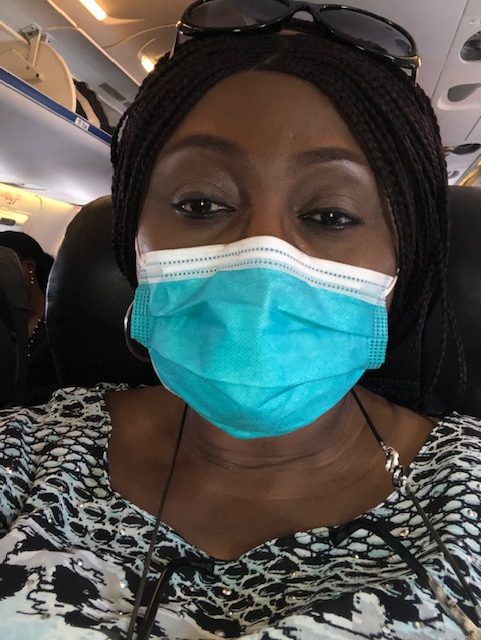COVID Diaries: Emilia Iwu, PhD, RN, APNC, FWACN

Assistant Professor at Rutgers School of Nursing, Rutgers alumna, and global health practitioner
An Emergency Evacuation from Nigeria to the U.S.
“My experience of COVID-19 pandemic was in New Jersey and Nigeria. Between February-April, I spent part of the semester working on my global health grant project in Nigeria developing capacity for adolescents living with HIV as peer supporters. The lock-down negatively affected access to non-COVID health services. Due to international flight restrictions, I returned to New Jersey on a U.S. embassy evacuation flight.
Iwu shares her experiences working with her Rutgers RN to BS students during the pandemic:
“The RN-BS students in clinical community health promotion course were excited to settle in at their clinical sites. As registered nurses, they also worked in acute care settings. The COVID-19 pandemic gave them first-hand experiences in public health emergency preparedness and management.
“At health departments, students participated in COVID-19 testing, but school health clinical ended abruptly. I immediately provided alternate options for clinical hours through case discussions/ reviews, webinars etc.
“With restrictions on family support at hospitals, nurses used Face-time, Skype and WhatsApp to connect patient and families. Our students were allowed to earn clinical hours for times spent counseling and supporting patients/family connections to reduce impact of isolation, death, dying and grieving.
Regular “Check-ins” Allowed Students to Share their Challenges and Fears
“‘Check-in” with the students at the beginning of each conference was critical to ensure they verbalize their experiences, concerns, fears and challenges with school work. This is necessary to identify their needs for support or referral for psychological assistance. They shared work place challenges such as: non-availability of protective gear; their exposure to COVID-19; false-negative COVID test results despite symptoms; and fears, fatigue, anxiety, and sadness from witnessing so many deaths. Our check-ins helped students to calm down and re-focus on course work.
Students Helped Bridge the Gap for Dying Patients and Their Families
“One of my students wrote:’ following the social workers during this time was an emotional experience that also provided me with beneficial information on how to provide essential emotional support for the patients, families, and staff…’ With the COVID-19 isolation and hospital visit restrictions, students in acute care settings were able to step in to bridge gaps and innovate psycho social support services for patients and families. This prevented very ill patients from dying alone.”
